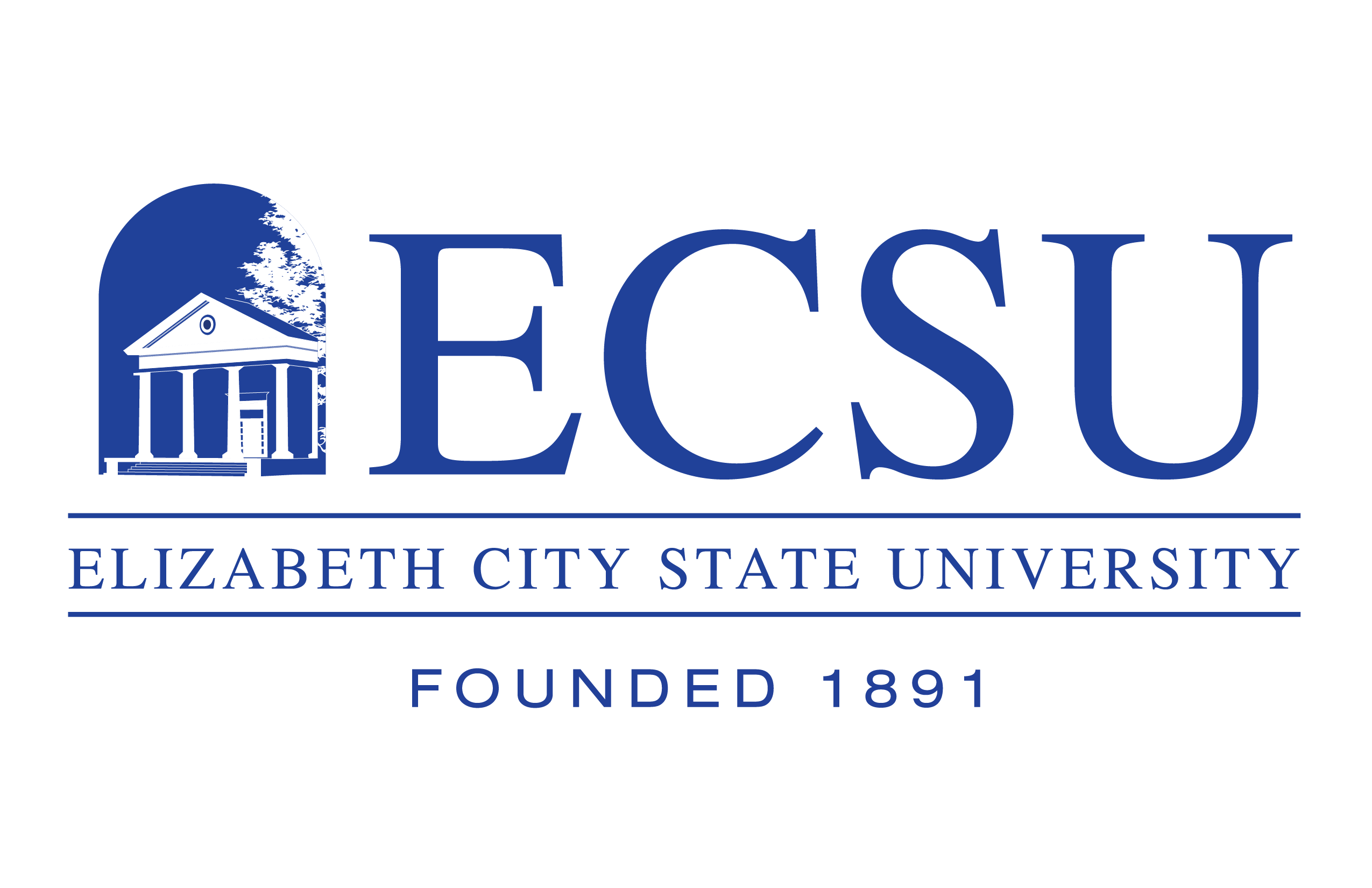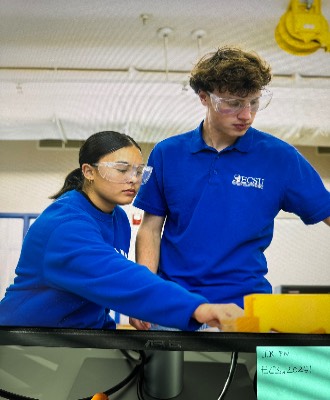Elizabeth City, N.C. — While universities across North Carolina are breaking new ground through research, Elizabeth City State University (ECSU) has steadily built a record of success and innovation of its own. This year, five ECSU faculty researchers earned nearly $260,000 in competitive grants from the North Carolina Collaboratory, funding projects that address health, environmental sustainability, and community resilience.
The 2025 awards mark the fourth consecutive year ECSU faculty have received Collaboratory funding. This achievement shows the university’s growing role in applied research and its expanding impact across the UNC System.
Since 2021, ECSU faculty have secured 18 Collaboratory-funded projects totaling nearly $1.9 million, advancing solutions in areas such as health equity, conservation, biomedical science and education.
“Over the past four years, the North Carolina Collaboratory has supported the innovative research of ECSU’s faculty and has played a key role in helping us expand research capacity. We are grateful to their leadership and for the partnerships that have developed as a result of these Collaboratory-sponsored projects. Also, we look forward to learning key research findings among the current group of faculty awardees,” said Annemarie Delgado, ECSU’s director of Sponsored Programs.
Established by the North Carolina General Assembly in 2016, the NC Collaboratory was designed to leverage the expertise of UNC institutions for practical use by state and local governments. Since its creation, it has distributed approximately $225 million to support more than 600 projects across all 17 campuses.
The Collaboratory’s continued support allows ECSU faculty to pursue projects that combine innovation with research that aims to improve lives, protect resources, and prepare future generations.
2025 NC Collaboratory–Funded Research Projects
Smart Functionalized Biomaterials for Enhanced Cellular Response in Bone and Joint Repair Applications
Principal Investigator: Dr. Preety Panwar
Co-PIs: Dr. Hirendranath Banerjee, Dr. Bijandra Kumar
Award: $49,558
According to the research’s abstract, "Musculoskeletal diseases like osteoporosis, arthritis, and bone cancer affect millions of people in the United States, especially older adults. These conditions often lead to serious bone and joint loss or damage, making it difficult to move, work, or enjoy daily life. In many cases, the only effective solution is to replace the damaged bone or joint with an implant to restore movement and reduce pain.”
The abstract also addressed the downside to implants. “Although modern bone and joint implants are made from durable materials like metal, ceramic, or polymers, they are still far from perfect. Complications like infection, implant loosening, or the need for replacement surgery are still common. One key reason is that these implants don’t always connect well with the body. The important cells that build bone, support joints, and fight infection often struggle to attach to the implant surface, which can delay healing and raise the risk of infection or long-term implant failure.”
This project aims to develop next-generation implant coatings using ultra-thin 2D materials like graphene, which are naturally antimicrobial and biocompatible, to improve healing and reduce long-term implant failure.
Exploring Indigenous Microalgae for Plastic Biodegradation in North Carolina Waters
Principal Investigator: Dr. Yan Cui
Award: $49,200
According to the project’s abstract, plastic pollution is a growing concern in North Carolina’s rivers, lakes and coastal waters, where larger debris breaks down into microplastics that can harm wildlife and enter the human food chain. These tiny particles are hard to remove and can carry dangerous chemicals and microbes. The project will develop educational materials, share its findings with the public, and support future nature-based strategies to reduce plastic waste in the environment.
Developing a Novel Therapeutic Strategy for Lung Cancer by Targeting the SHP2 Protein Phosphatase
Principal Investigator: Dr. Ahmed El-Hashash
Co-PI: Dr. Hirendranath Banerjee
Award: $50,000
Lung cancer, one of North Carolina’s most common cancers, remains the leading cause of cancer deaths in the state and nationwide, according to the American Lung Association’s 2024 State of Lung Cancer report.
According to the project’s abstract, “the proposed research represents a set of well-focused, innovative and novel approaches to this problem of lung cancer, by exploring how inhibiting one of the cell phosphatase enzymes called SHP2, which is elevated during lung cancer, can lead to a better control of key biological processes involved in lung cancer development and progression such as cancer cell migration, invasion and proliferation, leading to treating lung cancer.”
Adapted Sport/Recreation Pilot Program at ECSU
Principal Investigator: Dr. Mary Ally Keene
Co-PI: Dr. Boung Jin Kang
Award: $41,654
The Adapted Sport/Recreation Pilot Program at ECSU will provide a 12-week recreational opportunity for individuals with disabilities in Northeastern North Carolina, offering activities such as wheelchair basketball, boccia, wheelchair tennis, goalball and beep baseball. Funding will supply equipment that accommodates participants who are blind, use wheelchairs, have physical or intellectual disabilities, are deaf, and more. The program will also give ECSU students hands-on experience in adapted and Paralympic sports and in working with individuals with disabilities. Insights from the pilot and related research will guide future programming and the equipment purchased will support student training for the future.
Building a Resilient Workforce: Integrating Resilience Training into Health and Physical Exercise for Future Educators and Social Workers
Principal Investigator: Dr. Kimberly Fitchett-Bazemore
Co-PI: Dr. Kim Downing
Award: $69,340
This interdisciplinary project will provide resilience training to student teachers and social work interns, using the evidence-based Penn Resilience Program for which faculty leaders complete Train-the-Trainer certification. The Train-the-Trainer model creates a ripple effect, embedding resilience practices within the programs and extending them into campus, local schools, and human service agencies where students complete their internships. Students in both programs will receive the same resilience instruction and then share those strategies through presentations and workshops. By building these skills early, participants will be better prepared to manage stress, prevent burnout, and support the well-being of the communities they serve.

